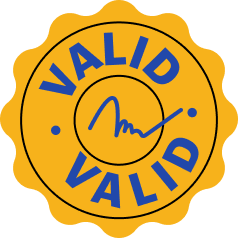- what is a digital signature?
- are digital signature secure?
- optimize security and legality
- faqs on digital signatures
Need help?
Check out our legality guide to know the legal status of digital signatures in you country/region.
Learn MoreFor queries or feedback, write to us at support@zohosign.com
Security and legality
With businesses slowly transitioning from wet ink signatures to digital signatures, there has been a growing concern regarding security and legality. Signing documents digitally is often misconceived as being open to risks, such as digital interception, phishing, privacy breaches, and document damage or loss. Understanding the legal aspects can also be difficult, especially if the right digital signature solution is not selected.
What is a digital signature?
A digital signature is a secure, unique, and paperless alternative to wet ink signatures that uses cryptographic techniques to ensure the security of a document. Businesses can mitigate risk like digital document tampering, forged signatures, human errors, and impersonation using a secure digital signature solution. There are a number of beneficial features that come along with digital signatures. Audit trails establish the signature time and other important document details. Authentication codes or government IDs help verify the signer's identity. Plus, digitally signed documents can be made valid for long periods of time.
Are digital signatures secure?

Digital signatures are absolutely safe and secure. Digital signatures function using a cryptographic technique called public key infrastructure (PKI). When a document is digitally signed, a unique private key is encrypted into the document as a digital signature. The signer sends the encrypted document to the recipient, along with a public key. If the keys match, the file can be decrypted.

Are digital signatures legally valid?
Digital signatures are legally on par with wet ink signatures in most countries. You can verify the legal status of digital signatures in your region here.
Optimize security and legality with Zoho Sign
Security
- Zoho Sign uses public key infrastructure using AES-256 encryption.
- In transit, documents comply with TSL/SSL protocols.
- Data in our servers is encrypted and cannot be read plainly, even by employees.
Compliance and certifications
Zoho Sign strictly complies with regional and international data privacy and security regulations, such as:
- EU GMP Annex 11
- 21 CFR Title 21 Part 11
- GDPR
- SOC Type 2 + HIPAA
- ISO 9001, and ISO/IEC 27001, 27701, 27017, 27018
Legality
Zoho Sign's digital signatures abide by national legal guidelines, such as the ESIGN Act in the USA, PIPEDA in Canada, eIDAS in the European Union, and the ITA in India. Check out our legality guide to verify the status of digital signatures in your country.
Authentication
Users can opt for signer identity verification, choosing from a range of methods, such as:
- Regional or national government IDs like Aadhaar, eID, and Singpass
- SMS OTP
- Email OTP
- Offline code
- Dynamic knowledge-based authentication
Audit trails
Zoho Sign allows for document timestamping, which establishes an audit trail that tracks the exact sign time, location, and other signer details. You can also enable blockchain timestamping or long-time validation to ensure that the document validity is accessible on a public blockchain and is verifiable over a longer period of time.
FAQs on digital signatures
Are digital signatures legally valid?
Yes, digital signatures are legally valid in most countries. You can verify the legality status of digital signatures in your region here.
How can Zoho Sign help in digital signing?
Zoho Sign is a user-friendly, legally accepted, and secure digital signature tool. With Zoho Sign, you can securely sign documents online, collect signatures from recipients, manage signing workflows, recall signature requests, track documents, and store them securely on your devices or in the cloud. Zoho Sign can be used on the go via the native mobile and desktop apps available on all popular operating systems. Learn more about our features and benefits here.
Do you offer a free trial?
We do! You can try all Zoho Sign features with our free 14-day Enterprise trial.
Does Zoho Sign offer AES and QES?
Yes, Zoho Sign offers both advanced electronic signatures (AES) and qualified electronic signatures (QES).
AES are digital signatures authenticate the signer's identity through a government-issued ID or entering a unique identity verification code, amongst many other methods. Zoho Sign integrates with regional and national IDs, such as e-Aadhaar and Singpass, and trust service providers (TSP) like TrustFactory.
QES are advanced electronic signatures that require the digital signature certificate to be issued by a qualified trust service provider (QTSP) with a qualified signature creation device (QSCD). QES is the only type of digital signature that is considered legally acceptable in the European Union. Zoho Sign can be integrated with QTSPs like itsme, Swisscom, Uanataca, and InfoCert, and also with regional IDs like the European Union eID.
Does Zoho Sign offer a free plan?
Yes, Zoho Sign offers a free plan with which you can send up to five documents, establish audit trails, and more. Learn more about our plans and features on our pricing page.